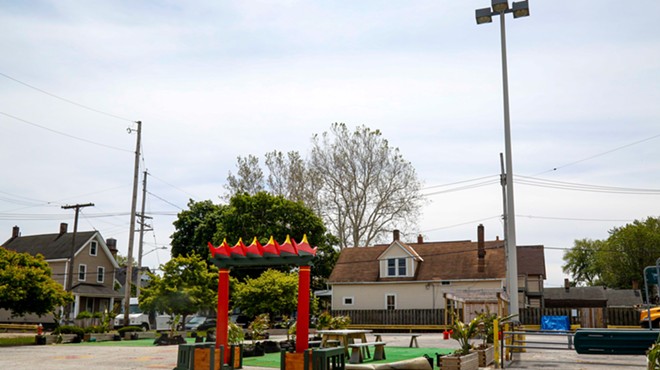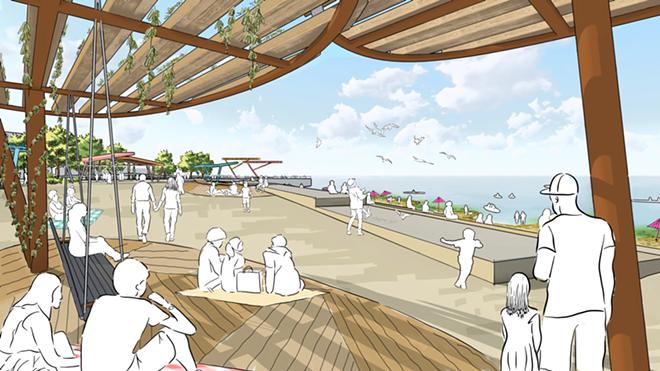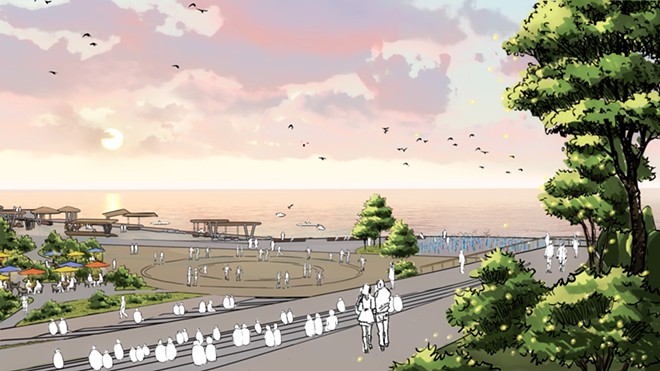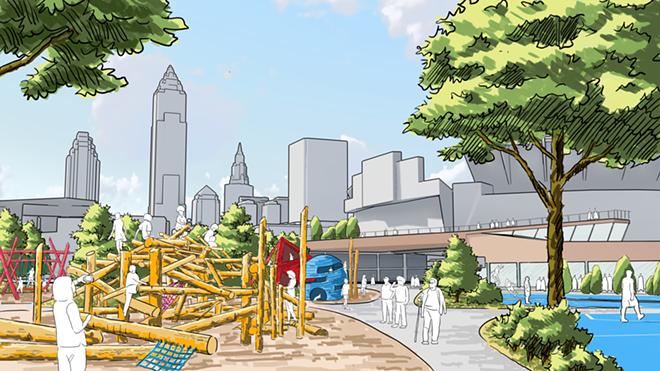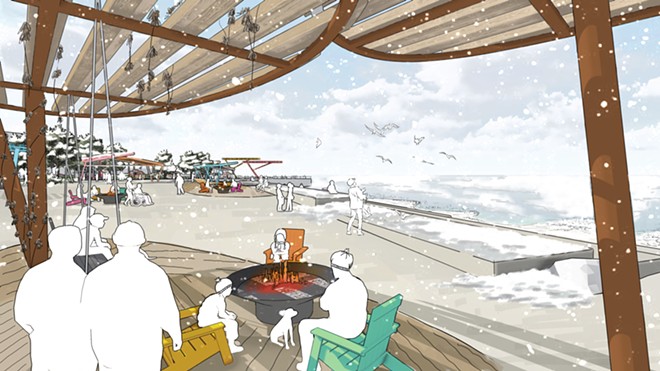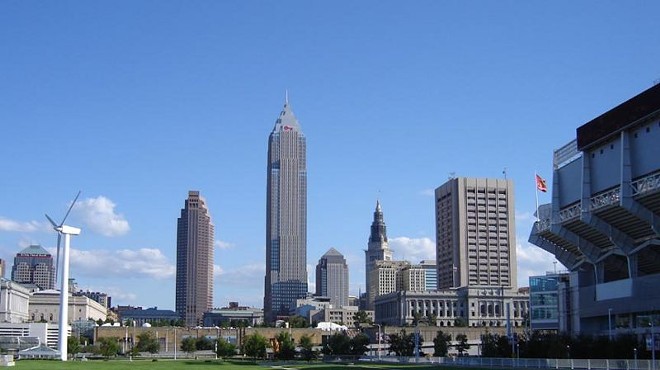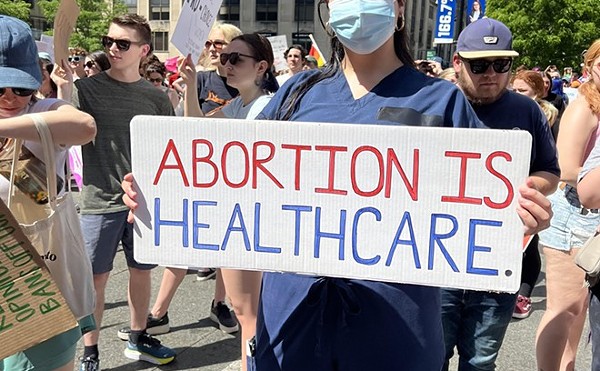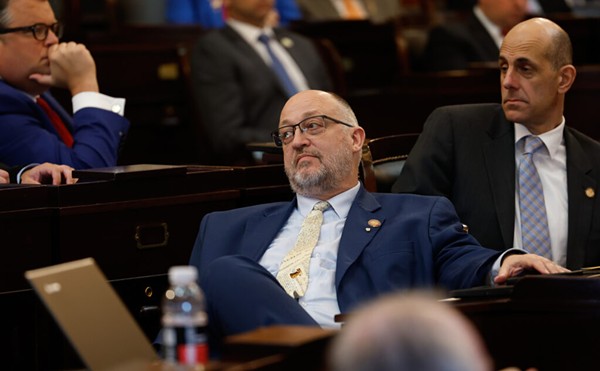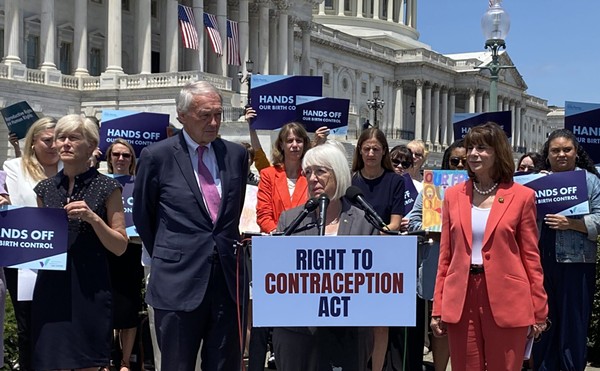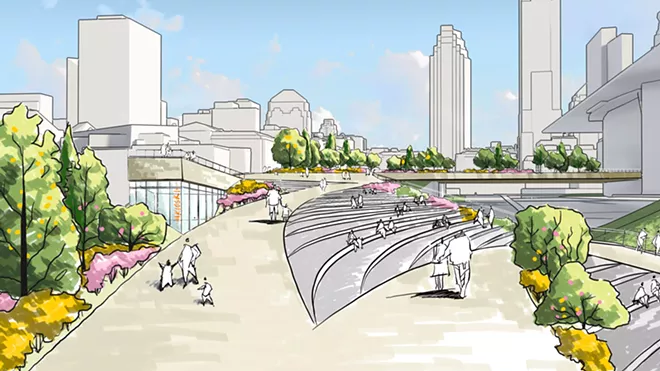
Spearheaded by James Corner Field Operations, or JCFO, the New York City-based landscape architectural firm that did Manhattan's High Line and Cleveland's Public Square makeover, this week's big reveal paid testament to months of groundwork. Since the first public feedback seminar in November, City Hall has held 11 listening sessions and surveyed more than 1,200 people.
On Thursday, at the Great Lakes Science Center, JCFO and Bibb returned with one focus: Make this long-awaited makeover of a dusty parking lot as diverse as possible.
"I'm talking about creating moods that would improve the ecological health of the city," Lisa Switkin, architect for JCFO, told a packed house on Thursday. "Promoting fitness. Promoting walking. All of those other things. This is a space people can heal together. It's an exciting, cleansing experience."
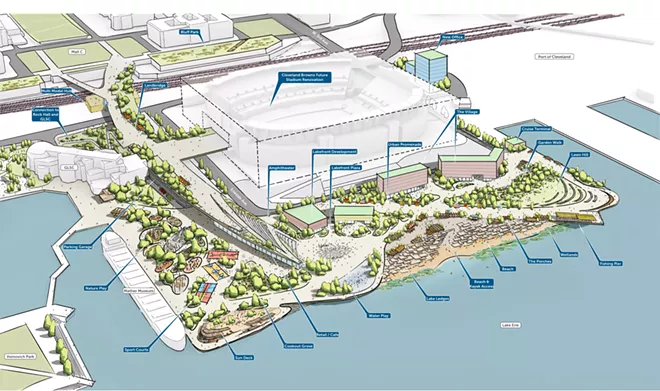
Though much less of the lakefront will be devoted to mid-rises than an alternate plan proposed by the Haslam family, which owns the Browns, JFCO is proposing some mixed-use development they're calling The Village, along with a building or two more for "Lakefront Development." One might wonder exactly how much rents might go for in such development.
Instead of exploring the issue of funding for the plan, Bibb doubled down on his notion of diversity, one that's had more of a personal resonance than the lakefront dreams of past mayors.
He was backed up by a video montage of mostly Black and Hispanic Clevelanders detailing their own wish lists for a North Coast makeover: "More parks." "More beach." "Live music." "Interesting shops." "A roller skating platform."
As for cost estimates for the eye candy in front of Clevelanders starving to see the lake made accessible, prices are not clear. The North Coast Connector, which could create a new stop on the currently dormant Waterfront Line, will cost more than $200 million to build. Bibb and Switkin were not clear on the price tag for the remainder of the master plan.
Both Bibb and Switkin also did not touch on a possible elephant in the room: the sure future of the Cleveland Browns Stadium. The Haslams confirmed this month that a $1 billion renovation of the arena is still on the table, and they're sworn to stay in Northeast Ohio.
But the Haslams deciding to pull out of North Coast could set JFCO's proposal for a loop and send the Bibb administration back to the drawing board. Especially if, one day, the stadium no longer stands.
As for when shovels will break ground, Bibb suggests as soon as funding is secured—"every one of my cabinet members are locked in and focused"—and JFCO's design stage wraps up in December. If all goes well, JFCO could be bringing their renderings to City Planning for review by the middle or end of 2024.
Overall, a renovated, 21st century lakefront, has sweeping benefits for the city's urban core, as exemplified in cities throughout the country. Atlanta's Belt Line, a $4.8 billion, 22-mile trail that surrounds its downtown, led to an increase of 118 percent in home values in some areas. New York's High Line shot up property values by 103 percent.
This reality of state-of-the-art landscapes has some big payoffs in Bibb's mind: In addition to increasing shoreline access beyond the 20 percent now available to Clevelanders, preventing a steady brain drain to other cities that've managed infrastructure projects in a more timely fashion.
"It's for the next generation, [to say] that this is a city for them," Bibb said, during the event's Q&A. "That they don’t need to leave to go to New York, D.C., Atlanta, or LA to get the experience they want. They can get it right here in their backyard in Cleveland."
Subscribe to Cleveland Scene newsletters.
Follow us: Google News | NewsBreak | Reddit | Instagram | Facebook | Twitter

